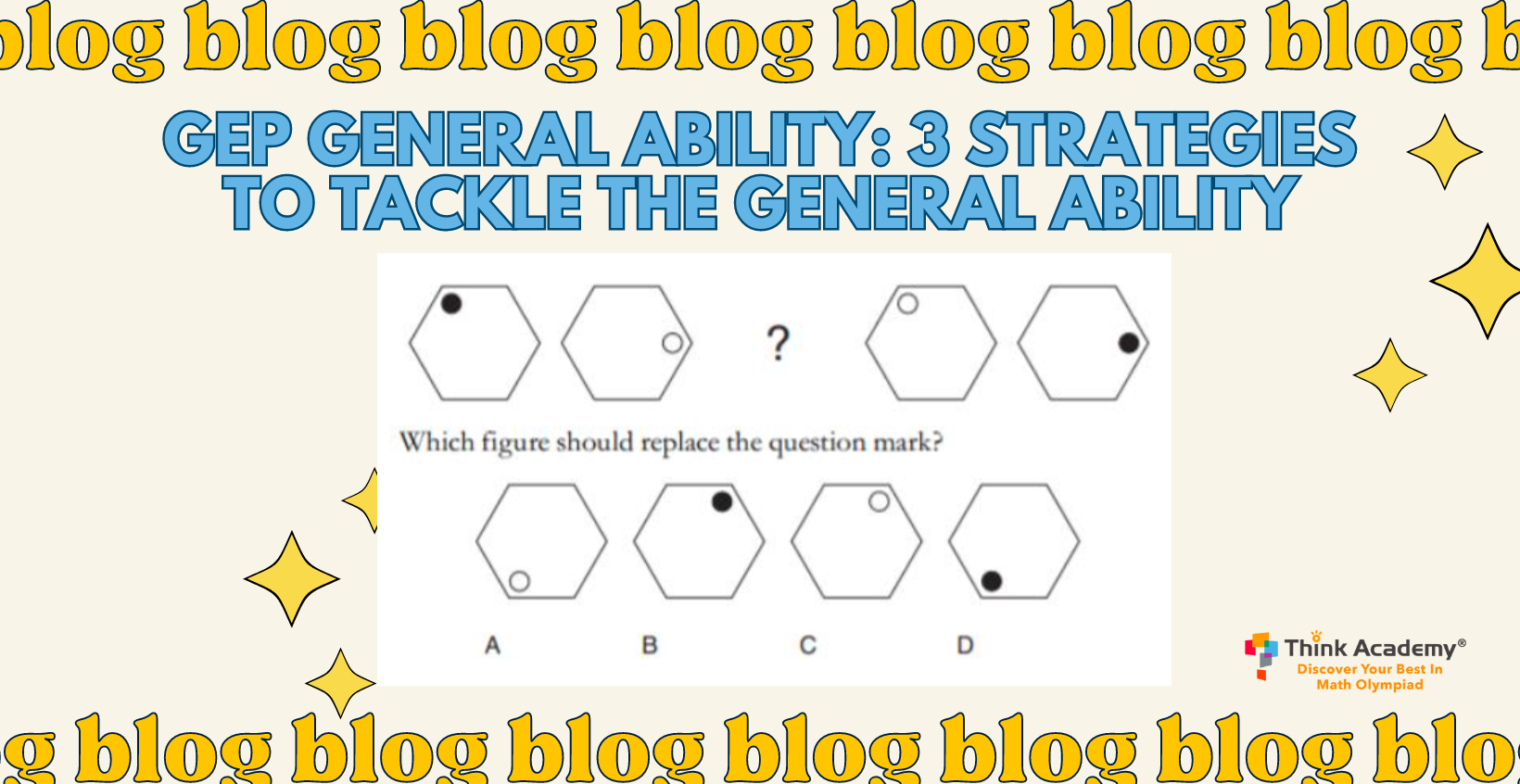Parents of primary school students are no strangers to the Gifted Education Programme (GEP) and its admission test including the general ability. The GEP is a highly reputable academic programme that promises an enriched curriculum to stimulate and tickle the curiosity of these highly gifted students. But what exactly is the GEP General Ability Test? Can I prepare my child for it? Should I send my child for preparation class?
What is the General Ability Test?
The General Ability Test is an abilities assessment that evaluates students on their cognitive abilities and aptitude. These abilities include general reasoning, learning capacity, observation and problem-solving ability. A GAT is similar to an IQ test, testing students’ ability to arrive at a conclusion and solve problems. Students’ innate abilities play a huge role in a strong performance on the GAT.
In contrast, Weighted Assessments (WA) and Semestral Assessments (SA) are achievement assessments that test students’ proficiency and knowledge of the subject.
The General Ability Test is one of the components in the Primary 3 GEP Identification Exercise during the Selection Round. The Selection Round exam is typically taken across 2 days including English, General Ability (English), Math and General Ability (Math).
GEP Selection Round – General Ability (Math)
The General Ability component takes about 1 hour and students will attempt 30-40 questions.
For the General Ability (Math), questions usually involve non-verbal reasoning and visual information. Topics tested include questions such as:
- Identifying patterns
- Decoding sequences
- Nets of cubes and 3D shapes and more
Check out this P3 GEP General Ability question and see if you can solve this!

To solve this question, students will need to focus on identifying a pattern. There are 2 shapes – a hexagon and a circle. Since the hexagon remains unchanged, we can focus on the characteristics of the circle. Observe the circle and think about the changes you see.
Notice that the colour and the position of the circle have changed. In the first hexagon, the circle is fully shaded while the circle in the second hexagon is unfilled, in an alternating pattern. Now, let’s check if our conjecture is right by testing it with the 4th and 5th hexagon.
Next, let’s look at position. Between the first and second hexagon, the position of the circle seems to move clockwise by 2 points on the hexagon. In that case, the final answer should be D.

Should I prepare my child for the General Ability Test?
Since General Ability is the learning capacity that you possess, there is perhaps little you can do to prepare for the General Ability Test. However, having a growth mindset a growth mindset, a positive learning environment and resources can improve your child’s general ability. To that end, it is more important to help your child develop critical thinking and problem-solving skills.

We have limited copies of the GEP book left. Contact our education consultant to find out how you can redeem this set of GEP guidebook.
- Our curriculum team carefully selected 10 frequently tested topics in the GEP Math component, providing a detailed explanation and step-by-step guidance for students to master the techniques and skills required.
- Independent practice and 100 challenge questions to consolidate and test students’ understanding
- Complete with a General Ability guidebook and practice questions
- An essential GEP guide and practice workbook for P1-P3 students
How can I prepare for the GEP?
For students who are looking to challenge themselves intellectually, the GEP might just be for them. Here are some tips to ensure that they are properly prepared for the GEP!
1. Familiarity breeds speed
Students are expected to complete 30-40 questions within a short timeframe of 75 minutes. This means that students can focus on answering frequently tested problems quickly and accurately, leaving them with time to solve more challenging problems. To develop speed and accuracy, students will need to be exposed to common problem-solving techniques.
2. Read widely
The English component of the GEP is a tricky one, testing students on vocabulary up to Primary 5 and 6 standard. The only way to build vocabulary is to read widely. Reading widely will develop children’s vocabulary and reading stamina, both crucial in overcoming lengthy passages in GEP English.

3. Practice exam-taking skills
For Lower Primary students, taking a 75-minute exam can be challenging for a few reasons. First, most primary schools might have scrapped the mid-year exams for lower primary. With the lack of practice in exam conditions, students might not be able to manage their time effectively. Secondly, students will need to focus for an extended period under exam conditions. Research has also shown that students perform better in a real test when given opportunities for practice tests.
An award-winning programme with effective teaching methods

Helmed by a team of dedicated, nurturing and award-winning team of Math Olympiad coaches and GEP graduates from top universities (Oxford, Princeton, NUS, NTU) with a single-minded dedication to bringing math concepts to life through engaging and interactive teaching methods. Students will be led in a time of teaching and learning before putting their newfound knowledge into practice! They will also get plenty of opportunities to practice through our mock tests and mid-term reviews scheduled to assess their mastery.
On top of that, students are encouraged to achieve their best in Math Olympiads and provided with additional resources and challenge questions to challenge their skills.
Find out more on our award-winning programme!






